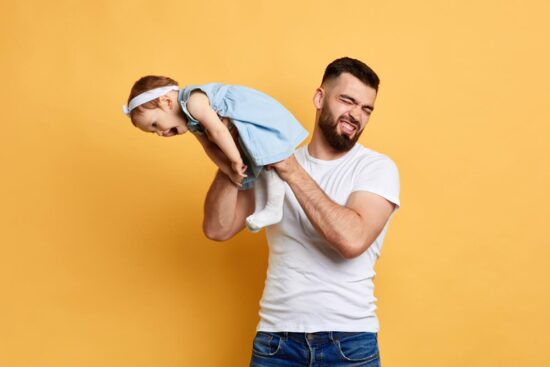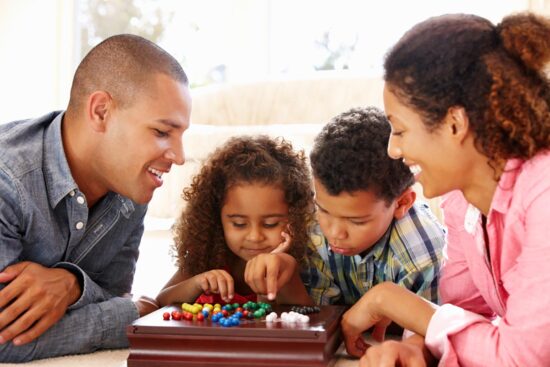How to Talk to Your Kids About Current Events
Current events can be hard to process, even for an adult, but as difficult as it may be to discuss, it’s important to consider how to talk to your kids.
2022-01-27T00:51:49+00:00
It’s hard to know how to talk to your kids about puberty, let alone ISIS. The world is a scary place, and the current events can be hard to process even for an adult, so imagine how traumatizing these topics would be for a child or teenager. Hate crimes, terrorism, government unrest, civil wars, natural disasters, disease outbreaks and more are splattered across the morning news every day, and it’s really hard to discuss these topics with other adults, let alone with your kids.
But as terrifying as it may be for everyone involved, it’s important that you do discuss what is happening in the world with your kids so that they can not only be educated about current events but also be prepared to talk about those events with others. As much as you may want to shield your family from painful situations, you also need to talk to kids, arm them with the information they need so they can learn from the mistakes of others so that they can make smart decisions in their personal lives and can help contribute the solutions in our world.
The interpretation of events

As Psychology Today reports, according to Eugene Beresin M.D., M.A., “media literacy is absolutely essential for our children.” As a parent, you need to “make sure that your children feel safe, and then talk with them frankly about recent events, and the multiple ways that the images they see can perhaps be improperly interpreted.”
So how do you even begin? First of all, put things into perspective.
The mind of our boys

Shutterstock
Furthermore, you need to explain the basics of a situation as it relates to your kids. Margret Nickels, Ph.D., director of the Erikson Institute Center for Children and Families, explains that “kids perceive all events as happening nearby,” so you need to help them understand where something is taking place in relation to your family and your life. “Use a map or globe to give your child some perspective.”
As for when you should share scary news stories and bad news with your kids, Dr. Paul Coleman, author of How to Say It to Your Child When Bad Things Happen, suggests that you wait until they are older if you can. Older kids “might see it on TV or hear about it at school, and then you have to deal with it. But younger children might not be able to handle it well,» he explains.
The eyes of infants

Young kids may understand if something is right versus wrong, but they don’t understand the cruel motivations of others, they don’t understand how they will be affected by a situation that might take place somewhere else in the world, and they certainly don’t need to deal with the trauma of violent situations and loss until absolutely necessary.
When you do broach the tough topic of current events, make it a conversation, rather than a lecture. Your kids don’t want to be talked down to or feel like they are in school. They will respond best and feel safest if you engage in an open dialogue about what they see and hear on the news, from their friends or on TV. Ask what they already know and how it makes them feel.
The emotions of the events

Tell them what you know and how it makes you feel. Remind them that their feelings of fear, confusion, frustration, and pain are totally normal and that you share their emotions. Keep the facts simply to start, but be open to answering any questions your kids may have and encourage them to talk to you any time they are concerned.
While you do want to be open and honest with your kids, you also don’t want to traumatize them unnecessarily. Dr. Phil suggests that you use verbal communication to explain current event stop your kids, rather than visuals from the news. He explains that kids are visual learners, and they might be extremely affected by the scary images they see on TV. When they are old enough to see what is happening around the world, “make sure they understand that there are people impacted by this and that we don’t take it lightly. Ask them their opinions. Solicit questions and answer them truthfully in an age-appropriate way,» he suggests.
The positive face

Last but not least, when you talk to kids emphasize the positives of different worldly events, and focus on the many ways you and your kids can help, rather than only stressing about the terrible tragedies. If you are talking to your kids about natural disasters and the thousands of people struggling to rebuild their lives, talk about how your family can help and take action to provide aid to others.
While the world is a scary place and bad things happen to good people every day, a happier, safer, better future lies in the hands of our kids’ generation. When thinking about how to talk to your kids, foster a sense of public service, kindness and generosity within your family so that your kids will take their desire to help others with them as they get older.
The post How to talk to your kids about current events appeared first on Mundo Hispanico
 Related post
Related post





